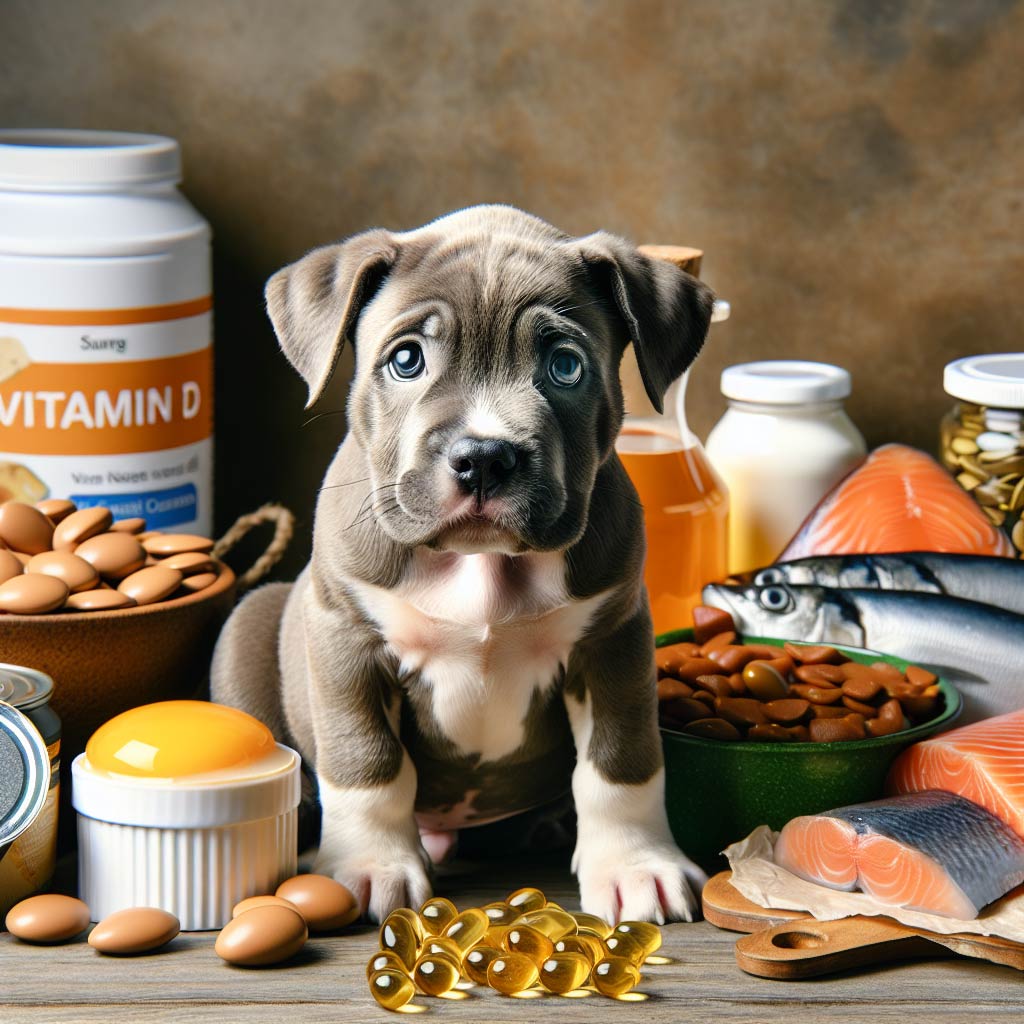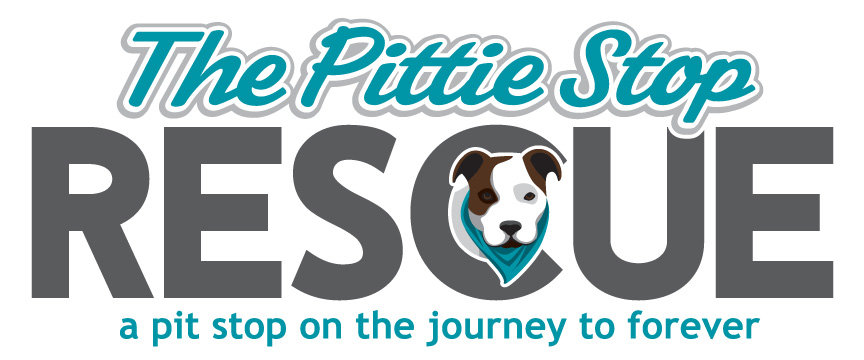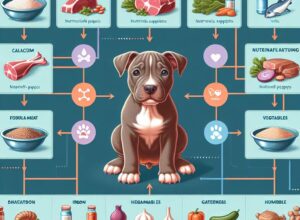
Shining a Light on Vitamin D: Essential for Pitbull Puppies
When it comes to raising a healthy pitbull puppy, understanding the role of vitamin D is as crucial as love and training. Just like us, our four-legged friends need this vital nutrient to thrive, but they can’t just soak up the sun to get their fix. Let’s explore how you can ensure your pitbull puppy isn’t missing out on this essential component for a strong start in life.
Key Takeaways: Understanding Vitamin D’s Role and Deficiency Risks
- Vitamin D is a must-have for your pitbull puppy’s bone development and overall health.
- Deficiency signs can be subtle, so keep your eyes peeled for any changes in behavior or physical condition.
- Regular vet check-ups are your best defense against undetected deficiencies.
- Diet is key: Ensure your puppy’s food contains the right amount of vitamin D.
- Supplementation can help, but it’s a fine line—too much can be just as harmful as too little.
The Silent Culprit: Spotting Deficiency in Young Pits
It’s a sneaky issue, often going unnoticed until symptoms force us to take notice. Vitamin D deficiency in pitbull puppies can lead to serious health problems down the line. But how can you tell if your pup is getting enough? It starts with knowing what to look for.
Stumbling and Weakness: Physical Symptoms to Watch
Imagine your energetic pitbull puppy, usually a whirlwind of activity, suddenly starts to stumble or shows signs of weakness. It’s not just a case of the sleepies; these could be red flags for vitamin D deficiency. Watch for these physical signs:
Weak Bones: A puppy that fractures easily or has trouble getting up might be lacking in vitamin D.
Delayed Growth: If your pitbull is growing slower than its littermates, it’s worth checking their vitamin levels.
From Lethargy to Loss: Behavioral Changes and their Meaning
It’s not just about the physical. Your pitbull’s behavior can give you clues about their health. A sudden lack of interest in playtime or a decrease in appetite can signal something’s off. Don’t ignore these behavioral changes—they’re your puppy’s way of telling you they need help.
“When Max started ignoring his favorite chew toy, I knew something was up. Turns out, he was vitamin D deficient. A quick diet adjustment and he was back to his playful self in no time.”
Through the Microscope: Diagnosing Vitamin D Deficiency
So, you’ve spotted some warning signs, and you’re concerned. The next step is to get a definitive answer. Diagnosis involves a combination of clinical signs and, most importantly, blood tests that measure vitamin D levels. Your vet will be your guide through this process, helping to interpret the results and create a plan of action.
The Vet’s Role: Tests and Interpretations
When it comes to your puppy’s health, your vet is the detective and guardian rolled into one. They’ll order a blood test to check vitamin D levels and might also suggest X-rays to examine bone health. Understanding these results can be tricky, but your vet will explain what they mean and how they’ll guide your pup’s treatment plan.
Reading the Signs: When to Seek Professional Help
Don’t wait for your puppy to show severe signs of illness before acting. If you notice any unusual symptoms like persistent weakness or loss of appetite, it’s time to call the vet. Early intervention can make all the difference, and when it comes to vitamin D, it’s better to be safe than sorry.
Nourishing Your Pitbull Puppy: Dietary Routes to Sufficient Vitamin D
A well-rounded diet is your first line of defense against vitamin D deficiency. Your pitbull puppy’s food should meet all the nutritional standards, including vitamin D content. But what if you want to go beyond kibble and offer natural sources of this vital nutrient? Let’s dive into some dog-safe options.
Sunshine and Salmon: Natural Providers of Vitamin D
While your puppy can’t process sunlight into vitamin D like we do, they can still benefit from time outdoors. Plus, foods like salmon are packed with natural vitamin D and are a tasty treat for your growing pitbull. Just be sure to serve it cooked and in moderation to avoid any other health issues.
Fueling Growth: Vitamin D-rich Foods for a Balanced Diet
Other great dietary sources of vitamin D include tuna, egg yolks, and fortified foods. Incorporating these into your puppy’s diet can help ensure they’re getting enough of this essential nutrient. Always check with your vet before making any significant changes to your pup’s diet.
Basking in Benefits: The Importance of Vitamin D for Your Puppy
Vitamin D isn’t just about strong bones; it’s a cornerstone of your pitbull puppy’s overall health. It supports their immune system, helps regulate calcium and phosphorus levels, and even influences muscle strength. Ensuring your puppy gets enough vitamin D is a major step in setting them up for a healthy, happy life.
Bone Strength and Beyond: Vitamin D’s Multifaceted Roles
Vitamin D does more than just build strong bones; it’s a key player in your pitbull puppy’s body. It helps control the balance of calcium and phosphorus, two minerals critical for bone formation and muscle function. But that’s not all; vitamin D also contributes to nerve health and boosts the immune system, helping your puppy fend off illness. It’s a powerhouse nutrient that supports their overall growth and vitality.
Avoiding Excess: The Fine Line Between Adequate and Too Much
While we focus on preventing deficiency, it’s important to remember that too much vitamin D can be harmful. Excess vitamin D can lead to bone loss and damage to the kidneys and heart. Always consult with your vet before adding supplements to your puppy’s diet. They’ll help you strike the perfect balance, ensuring your pitbull gets just what they need without going overboard.
Tackling Deficiency: Effective Solutions for Your Pitbull Puppy
If your vet confirms a vitamin D deficiency, don’t worry; there are effective ways to tackle the problem. From dietary changes to supplements, you can boost your puppy’s vitamin D levels safely. The key is to follow professional advice and monitor your puppy’s response to the treatment. With the right approach, your pitbull will be back on track in no time.
Supplemental Support: Safe Vitamin D Supplements
When diet alone isn’t enough, vitamin D supplements can help fill the gap. But not all supplements are created equal. Look for high-quality, vet-recommended brands that are formulated specifically for dogs. They come in various forms, like liquids or chewable tablets, making it easy to administer the right dose. Remember, always stick to the prescribed amount to avoid toxicity.
Outdoor Essentials: The Necessity of Playtime in the Sun
Playtime isn’t just fun; it’s an essential part of your puppy’s development and health. Regular outdoor activities allow your pitbull to exercise and socialize, but they also provide indirect benefits from the sun. While direct sunlight doesn’t give dogs vitamin D, it does promote overall well-being and a happy mood, which can boost immune health and vitality.
Protecting Puppies: Preventative Measures for Pitbull Owners
Prevention is always better than cure, especially when it comes to your pitbull puppy’s health. Start with a balanced diet, rich in vitamin D, and regular vet check-ups to catch any issues early. Keep an eye on your puppy’s behavior and physical condition, and be proactive with outdoor play and safe supplementation. By taking these steps, you’re not just preventing deficiency; you’re ensuring a foundation of good health for your pitbull’s future.
Early Steps: Ensuring a Head Start on Health
Getting your pitbull puppy off to a healthy start isn’t just about the right toys and training; it’s also about making sure they have all the nutrients they need. From the moment you bring your new friend home, focus on providing a diet that supports their rapid growth and development. Choose high-quality puppy food that’s formulated for their specific needs, and don’t be shy about asking your vet for recommendations. It’s the early choices that set the stage for a lifetime of good health.
Monitoring Progress: Keeping Track of Vitamin D Intake
Keeping an eye on your pitbull puppy’s vitamin D intake is a bit like being a nutrition detective. You’ll want to regularly review their diet and note any changes in their health or behavior. If you’re using supplements, keep a log of doses and any reactions. And at each vet visit, discuss your puppy’s vitamin D status. This ongoing vigilance ensures that your pitbull stays on the path to optimal health, with strong bones and a robust immune system.
Every Pitbull Puppy Deserves the Best: Act on Vitamin D Deficiency
When it comes to your pitbull puppy’s health, there’s no room for compromise. Acting on vitamin D deficiency is a critical step in ensuring your puppy’s well-being. If you suspect a deficiency, consult your vet immediately for a tailored solution. Whether it’s adjusting their diet, adding supplements, or increasing outdoor playtime, each action you take makes a difference. Remember, by being proactive, you’re not just solving a problem; you’re giving your pitbull the best chance at a healthy, happy life.
Frequently Asked Questions (FAQ)
How Much Vitamin D Does a Pitbull Puppy Need Daily?
The exact amount of vitamin D needed can vary based on your puppy’s age, weight, and overall health. Generally, puppies require about 500 IU (International Units) per kilogram of food consumed on a dry matter basis. However, it’s crucial to consult with your vet for the most accurate guidance, as they can provide recommendations based on your puppy’s specific needs and the vitamin D content of their diet.
Can Pitbull Puppies Get Vitamin D from the Sun Like Humans?
Unlike humans, pitbull puppies (and dogs in general) can’t produce vitamin D from sun exposure. Their fur coat inhibits the process that converts sunlight to vitamin D, which is why dietary intake is so important. While they won’t get the vitamin directly from the sun, outdoor play is still vital for their overall health and happiness. Just remember that their vitamin D needs to come from what they eat.
What Are the Consequences of Untreated Vitamin D Deficiency?
Ignoring vitamin D deficiency can lead to rickets in puppies, a condition that softens and weakens bones. In severe cases, it can cause permanent bone deformities, fractures, and growth retardation. Additionally, vitamin D plays a role in muscle and nerve control, and a lack of it can lead to more subtle health issues over time. Early detection and treatment are essential to prevent these serious outcomes.
Are There Any Breed-Specific Considerations for Pitbulls and Vitamin D?
While there are no breed-specific requirements for vitamin D, pitbulls, like all breeds, need an adequate supply for healthy development. Due to their fast growth and muscular build, ensuring they have enough vitamin D is particularly important to support their bone structure and overall health. Always tailor your puppy’s diet to their individual needs, considering their breed, size, and activity level.
How Can I Tell if My Puppy’s Food has Enough Vitamin D?
Check the nutritional label on your puppy’s food packaging. It should list vitamin D content. If you’re unsure, consult with your vet, who can help you understand the label and determine if your puppy’s diet meets their vitamin D requirements. High-quality commercial puppy foods are formulated to meet all the nutritional needs of growing dogs, including vitamin D, but it’s always good to double-check.
What Are the Consequences of Untreated Vitamin D Deficiency?
Let’s get straight to the point: untreated vitamin D deficiency in pitbull puppies can have serious consequences. Without enough of this nutrient, your puppy could develop rickets, a disease that softens and weakens the bones. This isn’t just about a limp or a slower gait; we’re talking about permanent bone deformities and potentially life-long issues with mobility. Vitamin D also supports your puppy’s immune system, so a deficiency could leave them more susceptible to infections and diseases. It’s not a risk worth taking, so stay vigilant about your pitbull’s vitamin D levels.
Are There Any Breed-Specific Considerations for Pitbulls and Vitamin D?
While pitbulls don’t have unique requirements for vitamin D compared to other breeds, their robust and muscular build does put a premium on proper bone health and strength. A pitbull’s active lifestyle and rapid growth phase make it crucial to monitor their vitamin D intake closely. Remember, each dog is an individual, and factors like diet, health history, and even where you live can influence their vitamin D needs. Always tailor your approach to your pitbull’s specific situation.
How Can I Tell if My Puppy’s Food has Enough Vitamin D?
Determining if your puppy’s food has sufficient vitamin D is easier than you might think. Start by checking the nutritional label on the food package. It should list the vitamin D content. If you’re not sure what to make of the numbers, your vet can be a great resource. They can help you understand the label and decide if your puppy’s diet is on track. Most high-quality puppy foods are designed to meet the nutritional needs of growing dogs, including vitamin D. But it’s always a good idea to confirm that the food you’ve chosen is right for your pitbull puppy.
In conclusion, vitamin D is a non-negotiable part of your pitbull puppy’s diet. It’s essential for their bone health, growth, and immune function. By keeping an eye out for signs of deficiency, understanding the risks, and ensuring your puppy’s diet is up to par, you’re setting the stage for a lifetime of health and happiness. Remember, your pitbull relies on you to make the right choices for their well-being. So, stay informed, consult with your vet, and give your pitbull puppy the strong foundation they deserve.



